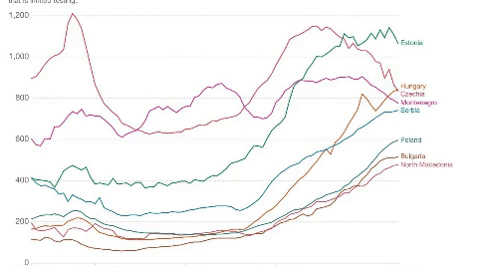After 20 years of same-sex marriage in Europe, where is it legal now?
Amsterdam is a city of the unexpected, perhaps especially at night. But in the small hours of April 1, 2001, something unprecedented happened there.
Just after the stroke of midnight at City Hall, the mayor of Amsterdam married four couples, each of whom happened to be gay, as the Netherlands – having passed the law the year before – became the first country in the world to conduct same-sex marriages.
"There are two reasons to rejoice," Mayor Job Cohen told the beaming newlyweds, shortly before they and their guests got stuck into the pink champagne and pink cake. "You are celebrating your marriage, and you are also celebrating your right to be married."
In the two decades since, the legalization of same-sex marriage has been neither uniform nor particularly rapid. In all there are now 28 countries in the world which allow same-sex marriages.
More than half of those are in Europe, but even here there are notable divides. While most of Western Europe now permits same-sex marriage, most of Eastern Europe doesn't.
Some of the countries yet to legalize same-sex marriage, including Czechia, Greece and Italy, have permitted some sort of civil union, if not with full legal parity with marriage.
Other governments are opposed. Last year, Poland's President Andrzej Duda was re-elected after campaigning against gay rights, which he called "destructive."
Elsewhere, the debate continues. Last December, Switzerland's parliament approved the legalization of same-sex marriage, but the law has yet to take effect, while opponents are actively endeavoring to collect enough signatures to force a confirmatory referendum.
Meanwhile, Amsterdam has marked the 20-year anniversary and the Netherlands as a whole is closing in on 20,000 same-sex marriages in 20 years (of which about 53 percent were between women).
Originally published by CGTN Europe, 3 April 2021. Animation by James Sandifer





